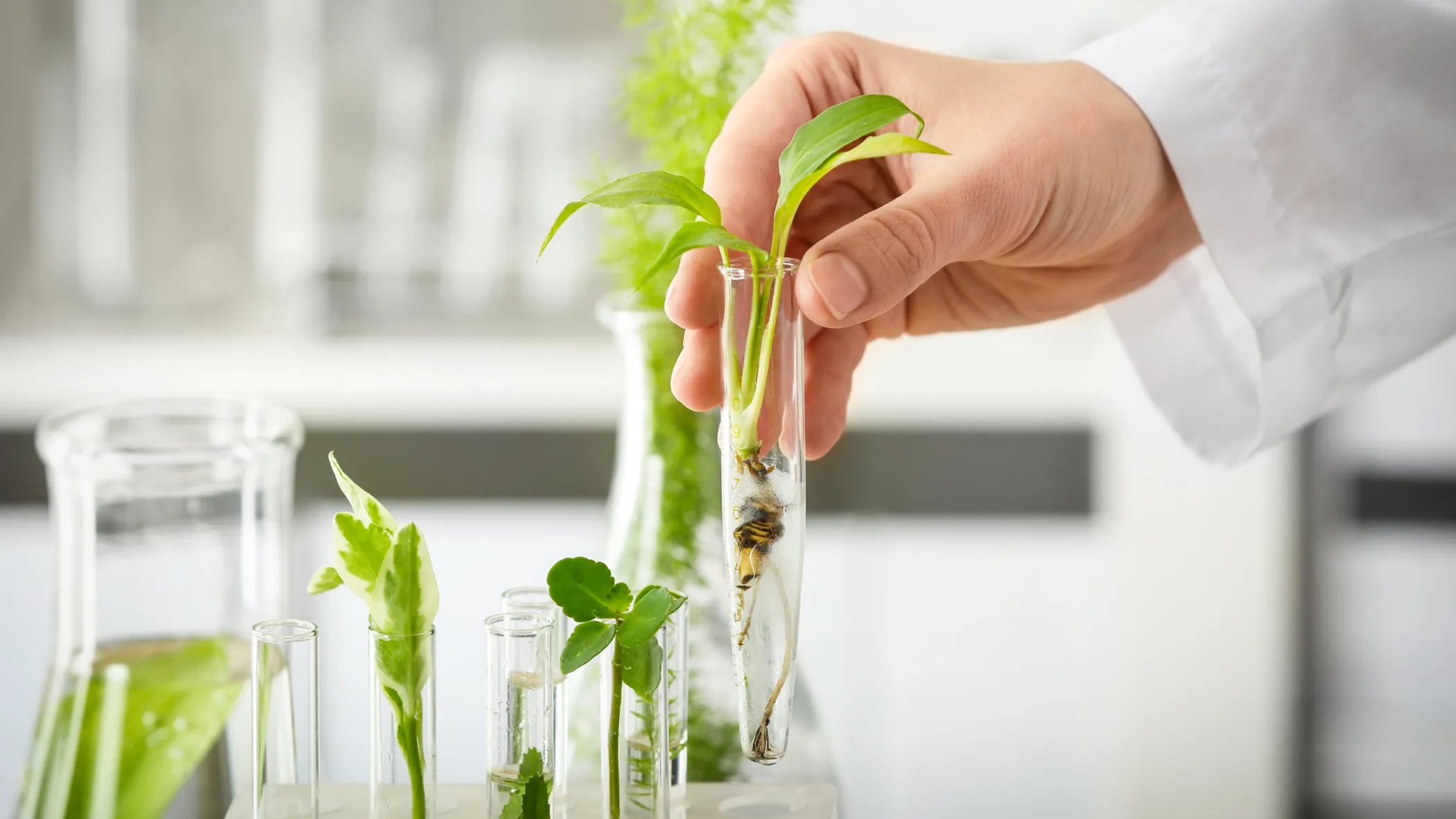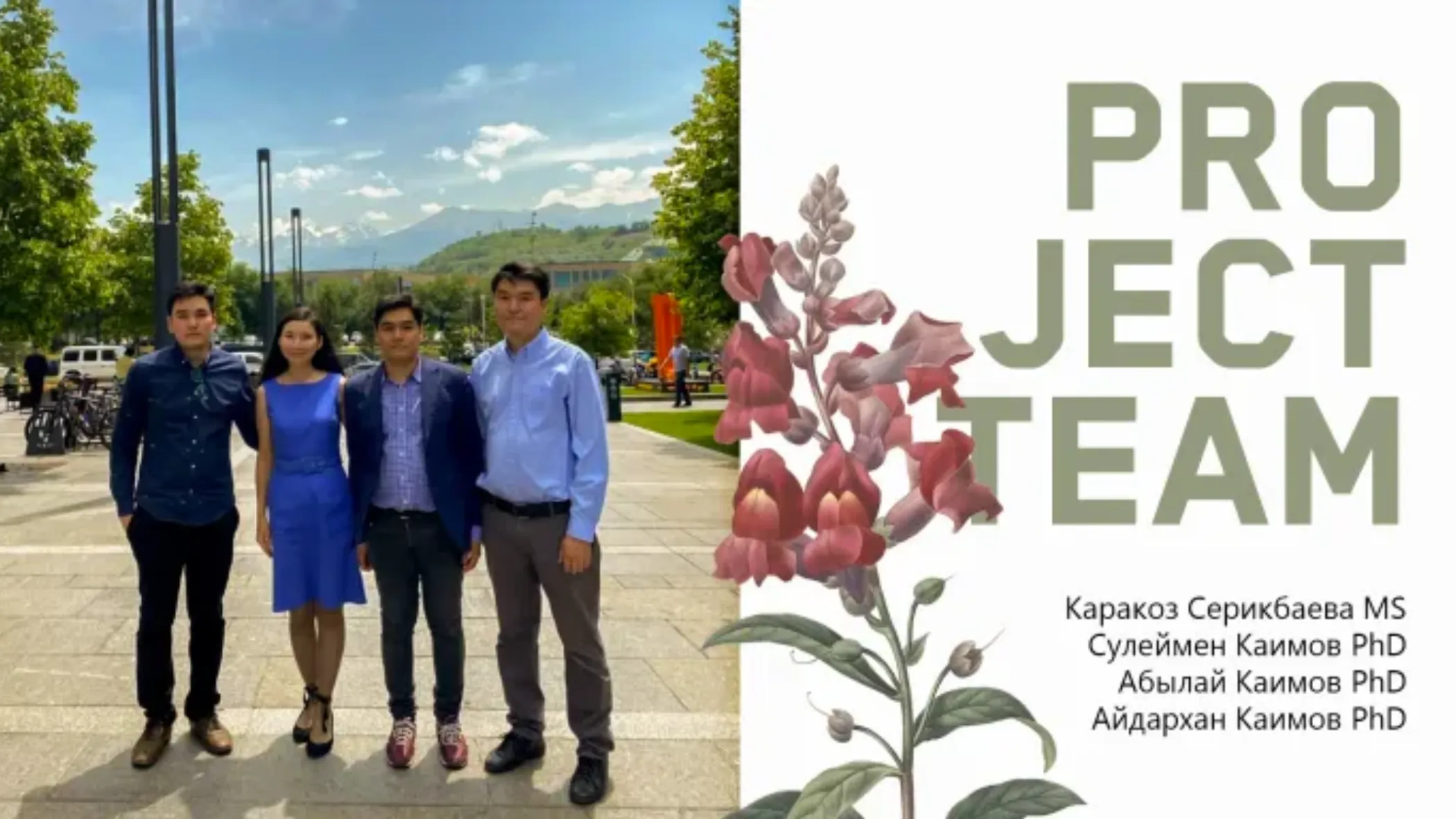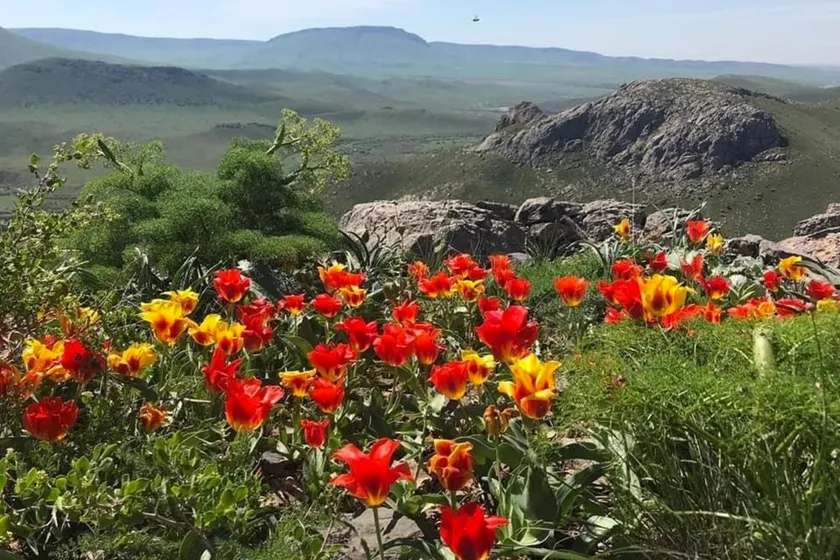A team of scientists from Kazakhstan has created a unique technology that can restore populations of red-listed plants anywhere in the world. For now, the technology is planned to be tested in Kazakhstan in order to save rare plant species from extinction, but the authors of the project hope their invention will be scaled globally.
In an interview with Er10, the team – consisting of Abylay Kaimov PhD, Suleimen Kaimov PhD, Aidarkhan Kaimov PhD and Karakoz Serikbaeva MS – talked about their ambitious project in more detail. Qazmonitor presents the summary of the interview.
Restoring dying species
Plants can reproduce in two ways: sexually and asexually. To revive a dying plant species, scientists should be able to produce multiple plants from just a small part of a plant specimen without inflicting any damage.
In that sense, asexual reproduction, which only requires one adult plant instead of two, is an advantageous method: the plants grow much faster, require less energy, and are less susceptible to genetic mutations.
Scientists can multiply plants artificially with a few techniques. Our project team study a method called micropropagation (propagation meaning the act of increasing in number).

Micropropagation is an artificial process where plant tissue is extracted to produce several genetically identical plants. The method involves tissue cells being grown in a test tube under 'in vitro' conditions. Once the tissues produce several numbers of new plants, they can be transferred to a new growth medium, like soil.
Until recently, this method was considered a good solution to cloning plant species faster as well as protecting the plant against viral infections.
The Kazakh team says that the latest studies have proven the importance of micropropagation to be much greater than initially thought. Now, the process gives the ability to continuously mass-produce 'artificial seeds' and synthesize plant varieties.
Creating a robot farmer
What is the project, exactly? Well, the scientists want to scale the propagation technique of artificial seeds from the lab to the industrial level.
The success of micropropagation on an industrial scale depends on the ability to transfer plants from in vitro on a large scale, at low cost and with high survivability in the soil. This requires an automated system that will replace humans and do the job quickly.
The end result of the project: a prototype of a robot with a gripper for moving plant micro shoots from the in vitro transport tank to the working tank with soil ground.
As for where the project will be tested, the automation is planned to implemented in the National Center of Biotechnology in Nur-Sultan.

More trees in the city
How important is this project? The technique does not limit itself to replicating just rare plant species. It can also be used to improve ecological conditions in an urban setting.
Planting trees in the city provides a multitude of benefits. Trees absorb toxic particles from the air, help form a microclimate of the city and provide protection from the natural elements. They have also been known to improve the overall quality of living.
In other words - the faster we can grow trees for city landscaping the better.
The team says the first round of plant population they would like to propagate are trees – Niedzwetzky's apple, Sivers apple, silver poplar and Bolle's poplar – as well as shrubs, like the Japanese spirea and cotoneaster, which have resistance to high and low temperatures, diseases, air pollution and dust.

About the authors of the project
The project team is comprised of authors of more than 60 scientific publications in highly ranked journals and more than 5 scientific patents. They have developed a unique training methodology for schoolchildren, students and company employees. Since 2021, the team has been accredited to teach worldwide.
Some of their most significant works include:
- Development of intelligent systems for information security audit and management - the creation of software and libraries for automated security management of databases, knowledge bases, cryptographic protection libraries, automatic generation of compliance reports to international standards for software security, generation of recommendations to improve software security, information protection system cost estimation;
- Automated system of dispatching of mining and transport works on the basis of satellite navigation - automated corporate management system of geotechnological complex;
- Creation and development of innovative robot with adaptive executive mechanism of manipulator grip for overloading of cylindrical and spherical cargoes;
- Creation of an innovative robotic complex for transferring micro-propagules from an in vitro transport tank into a working tank with soil for micro-crop propagation.
Their projects have been evaluated highly by faculty members of leading research centers in Italy, UK and USA.










